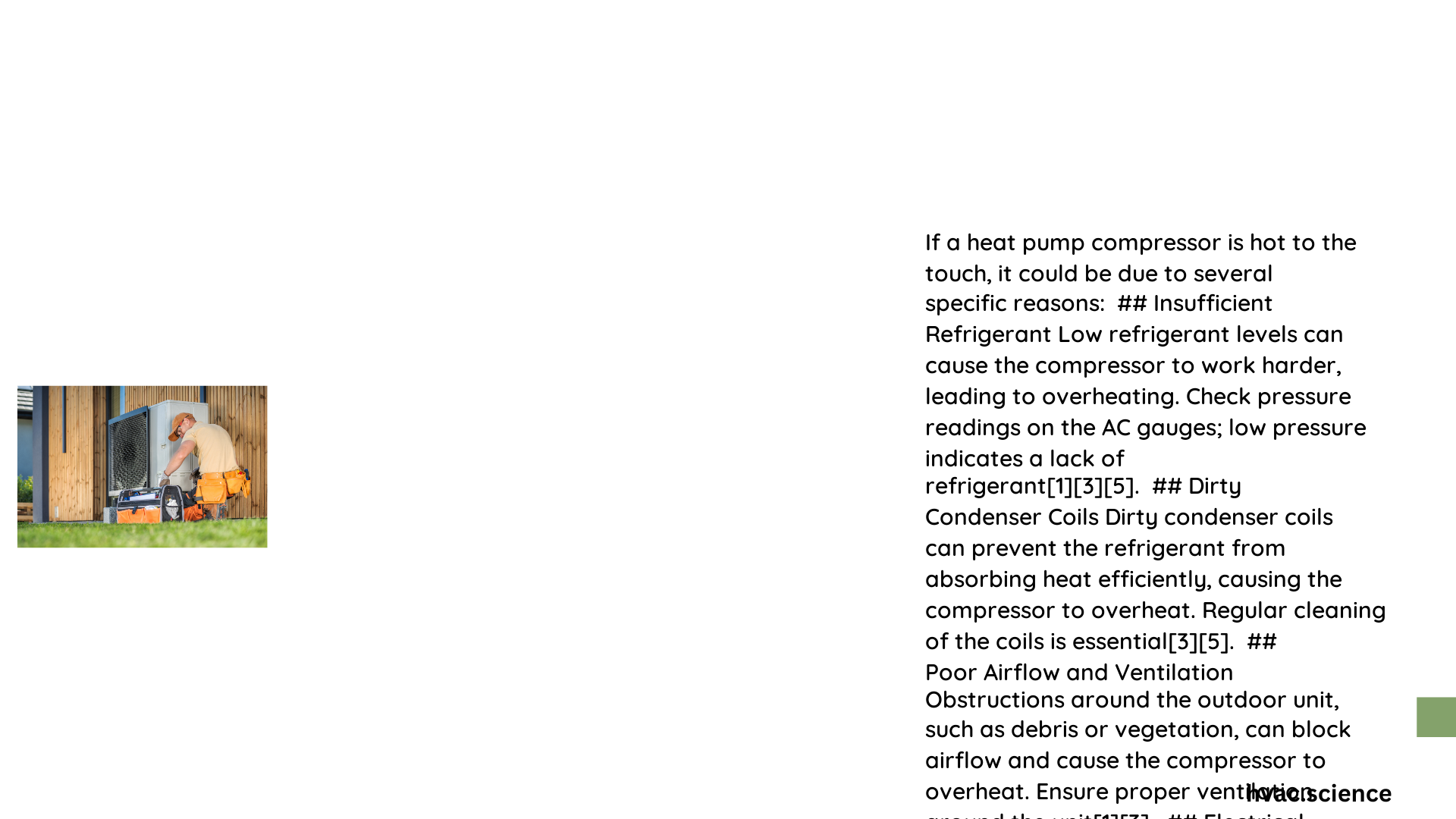A heat pump compressor that feels excessively hot can signal potential system problems, ranging from minor operational issues to critical mechanical failures. Understanding the temperature dynamics, acceptable ranges, and underlying causes is crucial for maintaining system efficiency, preventing equipment damage, and ensuring user safety. This comprehensive guide explores the complexities of heat pump compressor temperatures, providing insights into diagnosis, prevention, and professional management strategies.
What Causes a Heat Pump Compressor to Feel Hot?
Temperature Fundamentals
Heat pump compressors naturally generate significant heat during refrigeration cycles. The compression process converts electrical energy into thermal energy, causing temperature increases. However, excessive heat beyond normal operating ranges indicates potential system complications.
Normal vs. Abnormal Temperature Ranges
| Temperature Range | Status | Potential Implications |
|---|---|---|
| 120°F – 170°F | Normal Operating | Typical system performance |
| 170°F – 225°F | Cautionary | Potential minor system stress |
| 225°F – 250°F | Warning | Risk of component damage |
| 250°F+ | Critical | Immediate system intervention required |
Why Does Your Heat Pump Compressor Feel Extremely Hot?

Mechanical Stress Factors
- Refrigerant Charge Imbalance
- Low refrigerant levels increase compressor workload
- Causes internal temperature spikes
-
Potential discharge temperatures up to 271°F
-
Mechanical Component Wear
- Bearing degradation
- Lubrication system failures
- Increased friction generating excess heat
Environmental Triggers
- High ambient temperatures
- Restricted airflow around condenser
- Blocked ventilation spaces
- Accumulated dust and debris
How to Diagnose Compressor Overheating?
Professional Assessment Techniques
- Infrared temperature measurements
- Discharge line temperature monitoring
- Comprehensive system diagnostic scans
- Refrigerant pressure evaluations
Warning Signs
- Persistent hot compressor surface
- Frequent system shutdowns
- Unusual operational sounds
- Reduced cooling/heating efficiency
What Safety Precautions Should You Take?
Immediate Actions
- Do Not Touch: Avoid direct contact with hot compressor
- Disconnect power if extreme heat is detected
- Contact professional HVAC technician
- Maintain safe distance from potentially damaged equipment
Preventive Maintenance Strategies
- Annual professional system inspections
- Regular filter replacements
- Ensure proper system ventilation
- Monitor refrigerant levels
- Clean surrounding equipment areas
Technical Recommendations for Heat Pump Owners
Temperature Management
- Install temperature monitoring sensors
- Use professional-grade thermal imaging tools
- Establish baseline temperature benchmarks
- Create maintenance log for tracking performance
Professional Intervention Thresholds
- Temperatures consistently above 225°F require immediate assessment
- Discharge temperatures exceeding 250°F indicate critical failure risk
Expert Insights: Compressor Temperature Dynamics
Thermal Stress Factors
- Compression ratio
- Refrigerant type
- System age
- Maintenance history
- Installation quality
Long-Term Implications
Persistent overheating can lead to:
– Premature system failure
– Increased energy consumption
– Reduced operational efficiency
– Potential safety hazards
Conclusion
Understanding heat pump compressor temperatures requires technical knowledge and proactive management. While some heat generation is normal, persistent excessive temperatures demand professional evaluation to prevent costly repairs and ensure system longevity.
Recommended Actions
- Schedule professional inspection
- Implement regular maintenance
- Monitor system performance
- Replace aging components
Reference:
– HVAC-Talk: Compressor Temperature Discussion
– Caleffi Idronics: Heat Pump Fundamentals
– Purdue e-Pubs: Compressor Design Considerations
